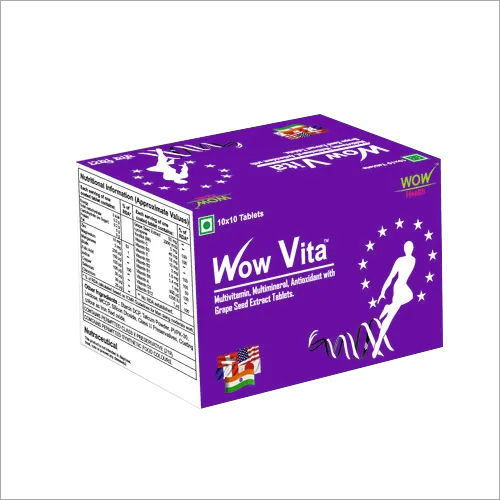
New Dietary Supplements
Product Details:
- Shelf Life 18 Months
- Efficacy Feed Preservatives Promote Nutrition
- Function Provide Energy
- Dosage AS SAID
- Dosage Guidelines With Water
- Dosage Form Tablet
- Storage Instructions NORMALLY
- Click to View more
New Dietary Supplements Price And Quantity
- 3000 Box
- 200.00 - 300.00 INR
- 350 INR
New Dietary Supplements Product Specifications
- Tablet
- Provide Energy
- AS SAID
- 18 Months
- With Water
- NORMALLY
- Feed Preservatives Promote Nutrition
New Dietary Supplements Trade Information
- Mumbai
- Cash in Advance (CID)
- Per Month
- 20-25 Days
- Yes
- Free samples are available
- CUSTOMIZED
- Western Europe Asia Australia North America Eastern Europe Central America Africa Middle East South America
- Himachal Pradesh Andaman and Nicobar Islands Nagaland Uttarakhand Daman and Diu Dadra and Nagar Haveli Lakshadweep South India North India East India West India Assam Arunachal Pradesh Bihar Chandigarh Delhi Gujarat Goa Jammu and Kashmir Jharkhand Karnataka Madhya Pradesh Maharashtra Mizoram Meghalaya Manipur Pondicherry Rajasthan Sikkim Tamil Nadu Telangana Tripura West Bengal Uttar Pradesh Haryana Punjab Andhra Pradesh Kerala Central India Odisha Chhattisgarh All India
- ISO- 22000-2005, WHO, GMP, FDA, HALAL, HACCP, FSSAI CERTIFIED COMPANY.
Product Description
New Dietary Supplements: The majority of adults in the United States take one or more dietary supplements either every day or occasionally. Today's dietary supplements include vitamins, minerals, herbals and botanicals, amino acids, enzymes, and many other products. Dietary supplements come in a variety of forms: traditional tablets, capsules, and powders, as well as drinks and energy bars. Popular supplements include vitamins D and E; minerals like calcium and iron; herbs such as echinacea and garlic; and specialty products like glucosamine, probiotics, and fish oils.
If you don't eat a nutritious variety of foods, some supplements might help you get adequate amounts of essential nutrients. However, supplements can't take the place of the variety of foods that are important to a healthy diet. Good sources of information on eating well include the Dietary Guidelines for Americans and My Plate .
Scientific evidence shows that some dietary supplements are beneficial for overall health and for managing some health conditions. For example, calcium and vitamin D are important for keeping bones strong and reducing bone loss; folic acid decreases the risk of certain birth defects, and omega-3 fatty acids from fish oils might help some people with heart disease. Other supplements need more study to determine their value. The U.S. Food and Drug Administration (FDA) does not determine whether dietary supplements are effective before they are marketed.

 English
English Spanish
Spanish French
French German
German Italian
Italian Chinese (Simplified)
Chinese (Simplified) Japanese
Japanese Korean
Korean Arabic
Arabic Portuguese
Portuguese



